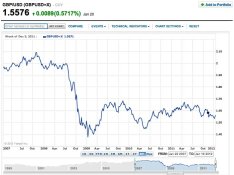I don't know about X-Rays from the US to the UK, but have regularly bought film in Afghanistan through the APO military mail and suspect most of it is X-Rayed in the military postal chain. I say this, because when I have had unusual looking items in there, the box has been opened, suggesting that the X-Ray has been the prompt for doing so. None have had any damage. I doubt it would be an issue, but there would be only one way to find out....
FWIW Foma has had QC issues before, but as far as I can tell (at least with Foma 100) it is clean as a whistle; at least it has been for me for hundreds of rolls over about four years. I believe most of the issues were related to the 200 film, which ceased production and has now come back from the dead. I do not know if QC is better now with this film and will have to try it.
Also, this whole freshness thing is overstated most of the time, esp with slow films. I just shot some 5x4 FP4+ that expired in 2005 and it is no different to new stock that I can see. I'd quite happily stock up on films and use them a little later, at or around their expiry, if it saved a boat load of money. By the time you have shot 250 sheets of 5x4, it will have cost you £190/$300 more in the UK compared to the US and that's significant.
Considering that the market for film products in the UK is smaller than the US, but not miniscule, I struggle to see how the economy of scale issue is the cause unless Ilford is allowing US importers to buy at much lower prices than they will allow UK wholesalers/retailers to buy at. We have trucking, the Atlantic, more trucking and (probably) warehousing (US) versus a few miles of British roads for UK retailers. Considering that retailers like Silverprint turn over plenty of Ilford film, paper and chems, I can imagine that they are able to take a good van load at a time. That van only has to do a relatively small number of miles down British roads from the Ilford factory, or take a share of a truck journey servicing a number of retailers in London.
Rather than being patronising as some posts have been, I would be interested to know if anyone can provide a convincing market driven explanation for the differential, rather than one that involves a deliberate pricing policy on the part of Ilford. I strongly suspect the latter and, if this is correct, I have every right to be indignant. That is how markets work. The consumer decides where choices are available and, whilst I am only one person, I am quite a liberty to make decisions which save me considerable amounts of money.





